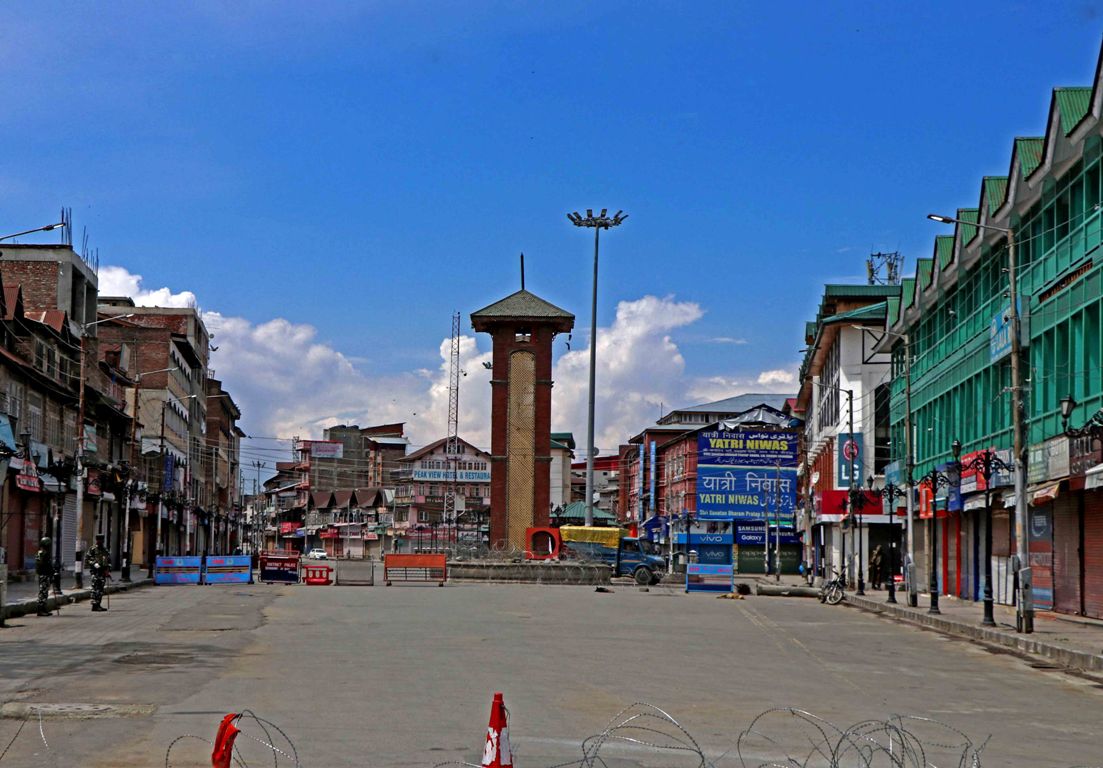by Mir Muhammad Nayyar Azam
In an attempt to break the chain, India anticipated the coronavirus crisis and announced a lockdown. India took the lead to begin a countrywide lockdown, an unprecedented measure, indeed. Even before China, the place where the virus was born. China reportedly failed to contain the initial spread of the virus, as a result, world witnessed a huge loss of precious human lives. Although started late, Wuhan lockdown appreciably slowed the spread of Covid-19 epidemic to other provinces of China. The most adequate interferences were suspending inter as well as intra-city public transport, and restricting public gatherings.

The lockdown in India has put everything to halt. Crippled the businesses and economy is in the doldrums. Millions of people have gone out of work, leaving the poor struggling with basic requirements like food and medicines. “The Indian macroeconomic situation is bleak and all set to get worse if local or national lockdowns continue for some more time”, renowned economist Jean Dreze said.
To an economy already passing through demand depression, the lockdown would add more to the woes by abating the supply, accelerating the slowdown further. Therefore, countries leadership has a very huge task at hand to stabilize the already hard battling economy.
Top economic experts estimate that the GDP may go down to 2 per cent, the lowest ever. Lockdowns are going to create hardships for the weaker sections of the society. The impact of lockdown on India’s informal sector including hawkers, auto and taxi drivers, and street vendors are going to be gigantic. The lockdown has already wretchedly hurt such communities due to loss of livelihood and lack of food, shelter, health, and other basic needs. Poor farmers and people associated with agro-economy could become the worst-hit victims of the lockdown. The government does have a responsibility to protect their health and wellbeing, as we are a welfare state.
As schools and colleges are shut across India, students are going to face some adverse effects in the absence of the actual teaching-learning atmosphere of the campus. Initially, it won’t scare much but it will have an enormous and critical impact on their overall educational outcome. The teachers and educators should move to virtual classes to ensure students connect over video-enabled remote classrooms. This would help to keep the learning process going amid lockdown.
The lockdown in India, the largest such exercise in the world, may not be enough to contain the spread of the novel coronavirus in the country, former Reserve Bank of India Governor Raghuram Rajan has said. It is a matter of huge concern because lockdown undoubtedly keeps people caged at home but it might be a slum or public squalors where people live together not necessarily an immaculate place. Countries could not lockdown their societies to triumph over this pandemic without public health measures to avoid the revitalization of the virus down the road. We really need to focus on is finding those who are sick, those who have the virus, and isolate them, find their contacts and isolate them,

Ryan a top emergency expert (WHO), said. “If we don’t put in place the strong public health measures now,’ “he said, “when those movement restrictions and lockdowns are lifted, the danger is the disease will jump back up,” Sitting lonely at home, caged, is not going to help it out in any way till there are enough tests done as South Korea, which has managed to halt the growth of the virus, tests 10,000 persons every day. As the number of coronavirus cases keeps rising in India, the focus has shifted to the weak health facilities and a massive shortage of ventilators. It is very important to contain the pandemic virus and break the chain in the least possible time so that we do not reach a situation where ventilators are needed in large numbers. As we are facing the shortage of ventilators, it is urgent and critical for the government to appeal for mass production of ventilators from local manufacturers so that we do not face a situation like Italy. “Don’t panic” “Stay safe”
(Author is Pursuing Masters in economics at SMVDU Jammu. Ideas expressed are personal)















